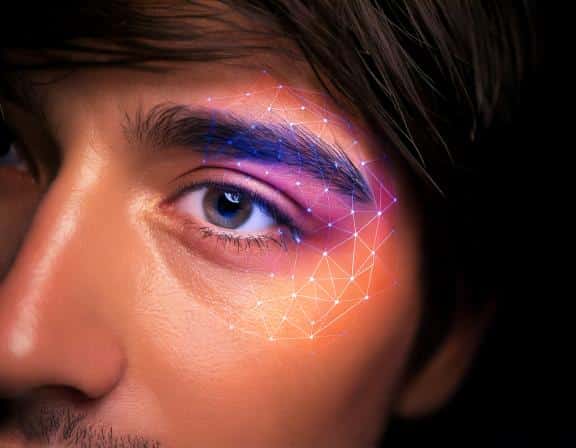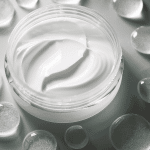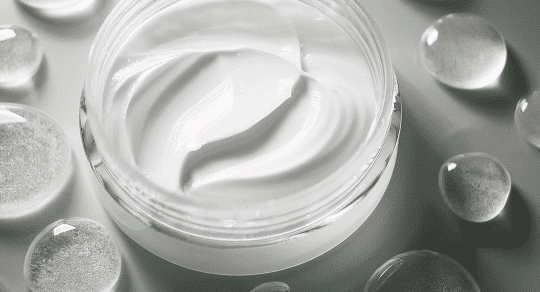
El futuro de la piel: How Cutting-Edge Science is Revolutionizing Beauty & Skincare (De la edición del ADN a la cartografía de la piel impulsada por la inteligencia artificial).
- Fecha del puesto: 19 Feb, 2025
Introduction: The Beauty Industry’s Scientific Renaissance
The skincare industry is undergoing a paradigm shift. No longer confined to marketing-driven trends, today’s beauty revolution is rooted in rigorous scientific discovery. From CRISPR gene-editing to synthetic biology and AI-powered diagnostics, scientists are decoding the skin’s inner workings like never before. This blog isn’t about hype—it’s about the tangible, evidence-based innovations that will redefine your skincare routine in the next decade.
1. The Skin Microbiome: Your Invisible Army of Health
What’s the Deal with Bacteria on Your Face?
For years, dermatologists preached the gospel of “cleanse thoroughly,” but now we’re learning that our skin’s microbiome—a bustling ecosystem of trillions of microorganisms—is critical for barrier function, immune protection, and even mood regulation.
- Key Findings:
- A 2023 study in Nature revealed that imbalances in the skin microbiome (e.g., Cutibacterium acnes) correlate with conditions like acne, rosacea, and psoriasis.
- Probiotic skincare (think Streptococcus thermophilus-infused serums) can restore microbial diversity and reduce inflammation.
- How to Apply This Science:
- Avoid over-washing with harsh surfactants like SLS. Opt for gentle, prebiotic cleansers.
- Incorporate topical probiotics or fermented foods (kefir, kimchi) into your diet to support gut-skin axis health.
2. Gene Editing: Designer Skin, Redefined
CRISPR technology is no longer just for curing diseases—it’s being used to address genetic skin concerns like hyperpigmentation, wrinkles, and even baldness.
- Breakthroughs to Watch:
- Melanin Modulation: Scientists are editing genes like TYR (tyrosinase) to reduce melanin production in conditions like vitiligo.
- Wrinkle Erasure: Early trials show CRISPR can boost collagen synthesis by targeting genes involved in aging.
- Hair Regrowth: Edit genes like FGF5 (which suppresses hair growth) to reverse genetic hair loss.
- Ethical Questions:
- Will “designer babies” with flawless skin become a reality?
- How do we regulate such technologies to ensure equitable access?
3. Personalized Skincare: Beyond Buzzwords
While “personalization” has been marketed as a trend, true science-based customization relies on data-driven insights:
- The Power of DNA Testing:
- Companies like GlossGenetics analyze your genome to predict skin sensitivities, UV damage risk, and ideal moisturizer pH.
- Example: A person with a COL1A1 variant may benefit from retinol earlier in life to prevent collagen breakdown.
- AI Skin Mapping:
- Tools like Proven Skincare use AI to analyze your skin’s texture, pigmentation, and dehydration levels in minutes.
- Result: Customized product formulas tailored to your unique needs.
4. Regenerative Medicine: Grow Your Own Skin
From stem cells to 3D-printed tissues, regenerative tech is repairing skin injuries and reversing signs of aging:
- Stem Cell Therapies:
- Fat-derived stem cells are used to regenerate damaged skin in burn victims and those with chronic wounds.
- Cosmetic applications include injectables that boost elastin and hyaluronic acid production.
- 3D Bio-Printing:
- Researchers at Wake Forest University have created lab-grown skin grafts for patients with severe burns.
- Future iterations could print pigment cells to treat vitiligo.
5. Pollution-Proof Skin: Your New Enemy is Invisible
Urban dwellers are exposed to 10x more particulate matter than rural residents, and this isn’t just bad for your lungs—it accelerates skin aging:
- The Science of Pollution-Induced Aging:
- Particles penetrate the skin, triggering inflammation and free radical damage.
- A 2022 Journal of Investigative Dermatology study found that pollution exposure increases wrinkle depth by 20%.
- How to Protect Yourself:
- Layer antioxidants and niacinamide to neutralize free radicals.
- Look for “pollution-shielding” formulas with ingredients like chlorella or activated charcoal.
6. The Future of Skincare: 2030 and Beyond
- Neurocosmetics: Products that target the brain-skin axis to reduce stress-related breakouts.
- Nanotechnology: Tiny particles delivering active ingredients directly into hair follicles.
- Space-Grade Skin Care: Research on radiation-resistant skin for Mars colonists could lead to Earthbound UV-protective breakthroughs.
Conclusion: Embrace the Scientific Revolution
The future of beauty is not about magic potions—it’s about understanding the skin’s biology and leveraging cutting-edge science to address its deepest needs. Whether you’re curious about probiotics, CRISPR, or AI skin mapping, the key takeaway is this: knowledge empowers you to make smarter choices.
Final Tip: Follow researchers like Dr. Anne-Laure Bouin (skin microbiome expert) and brands like Glossier (data-driven formulations) to stay ahead of the curve.





